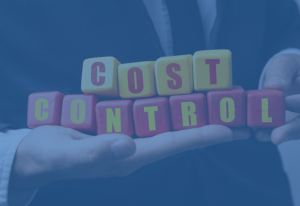
An ERP (Enterprise Resource Planning) system is a software solution that enables companies to manage their day-to-day operations, including financials, supply chain management, procurement, and human resources. While ERP systems are commonly associated with manufacturing and retail industries, they can also be effectively used by public utility companies to manage their unique requirements.
A public utility company is responsible for providing essential services to its customers, such as water, electricity, gas, and sanitation. Due to the critical nature of these services, it is crucial for public utility companies to have efficient and effective operations that are reliable, secure, and cost-effective. Here are some ways in which an ERP system can help:
Streamlined Operations
An ERP system can integrate various functions of a public utility company, including billing, customer service, procurement, and inventory management. This integration can streamline operations, eliminate redundancies, and improve productivity. It also enables real-time tracking and reporting of essential metrics, such as energy usage, water consumption, and customer complaints.
Improved Asset Management
Public utility companies need to manage their assets, such as power plants, water treatment facilities, and transmission lines. An ERP system can help manage these assets by tracking maintenance schedules, repairs, and replacement costs. This information can help companies prioritize repairs and replacements, thereby reducing downtime and improving overall asset performance.
Enhanced Customer Service
An ERP system can enable public utility companies to improve customer service by providing real-time access to customer data, such as usage history, billing information, and service requests. This information can help customer service representatives quickly resolve issues and provide personalized service.
Regulatory Compliance
Public utility companies are subject to various regulations related to safety, environmental impact, and pricing. An ERP system can help ensure compliance with these regulations by tracking and reporting data related to emissions, water quality, and other critical metrics. It can also automate pricing calculations based on regulatory requirements.
Cost Reduction
An ERP system can help public utility companies reduce costs by improving operational efficiency, reducing inventory carrying costs, and optimizing resource utilization. It can also help identify opportunities for cost savings by providing data on energy consumption, supply chain management, and other areas.
In conclusion, an ERP system can provide significant benefits to public utility companies by streamlining operations, improving asset management, enhancing customer service, ensuring regulatory compliance, and reducing costs. It is a powerful tool that can help companies manage their essential services more efficiently, effectively, and reliably.




